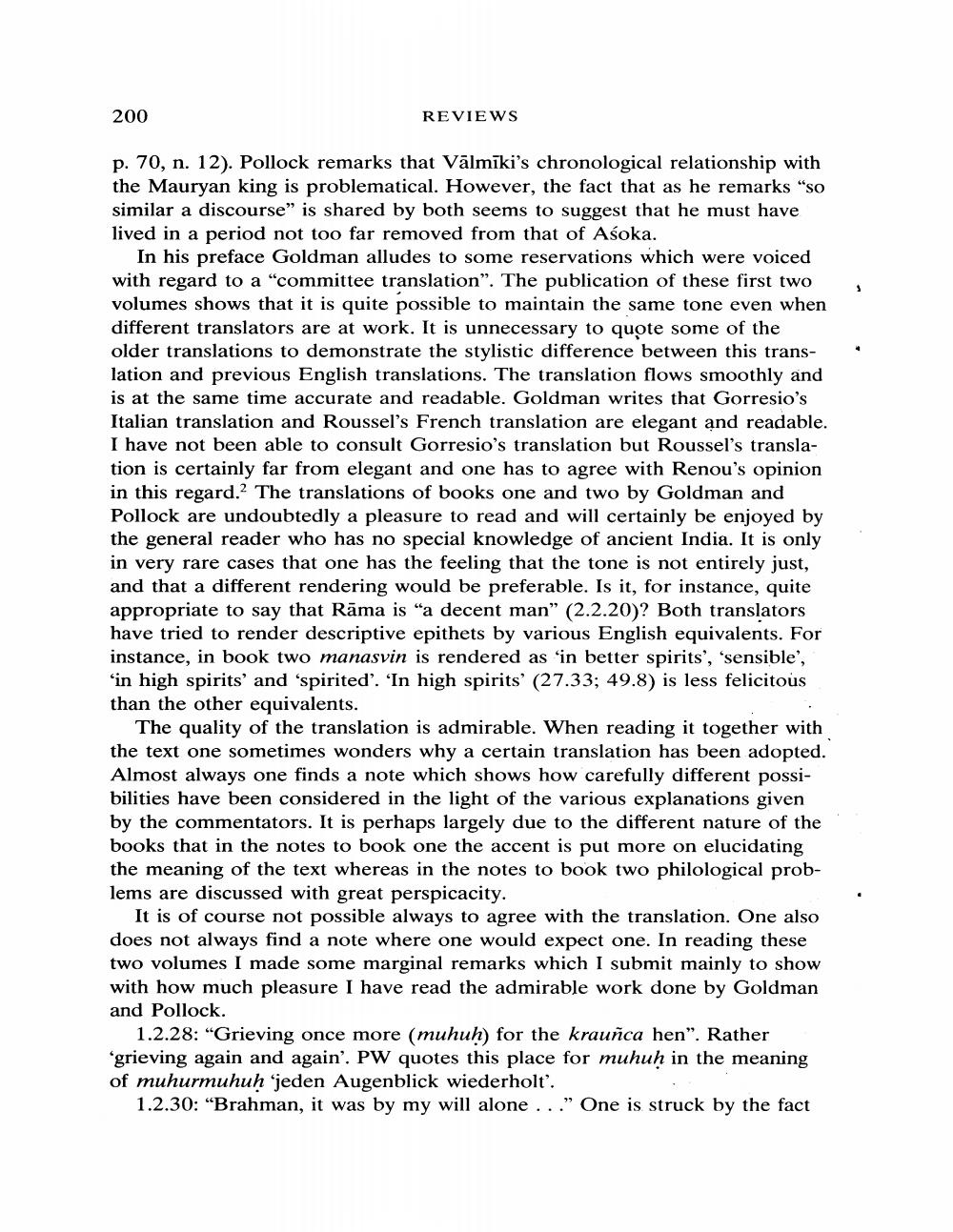Book Title: Reviews Of Diffeent Books Author(s): J W De Jong Publisher: J W De Jong View full book textPage 6
________________ 200 REVIEWS p. 70, n. 12). Pollock remarks that Välmiki's chronological relationship with the Mauryan king is problematical. However, the fact that as he remarks "so similar a discourse" is shared by both seems to suggest that he must have lived in a period not too far removed from that of Aśoka. In his preface Goldman alludes to some reservations which were voiced with regard to a "committee translation". The publication of these first two volumes shows that it is quite possible to maintain the same tone even when different translators are at work. It is unnecessary to quote some of the older translations to demonstrate the stylistic difference between this translation and previous English translations. The translation flows smoothly and is at the same time accurate and readable. Goldman writes that Gorresio's Italian translation and Roussel's French translation are elegant and readable. I have not been able to consult Gorresio's translation but Roussel's translation is certainly far from elegant and one has to agree with Renou's opinion in this regard. The translations of books one and two by Goldman and Pollock are undoubtedly a pleasure to read and will certainly be enjoyed by the general reader who has no special knowledge of ancient India. It is only in very rare cases that one has the feeling that the tone is not entirely just, and that a different rendering would be preferable. Is it, for instance, quite appropriate to say that Rāma is "a decent man" (2.2.20)? Both translators have tried to render descriptive epithets by various English equivalents. For instance, in book two manasvin is rendered as 'in better spirits', 'sensible', 'in high spirits' and 'spirited'. 'In high spirits' (27.33; 49.8) is less felicitous than the other equivalents. The quality of the translation is admirable. When reading it together with the text one sometimes wonders why a certain translation has been adopted. Almost always one finds a note which shows how carefully different possibilities have been considered in the light of the various explanations given by the commentators. It is perhaps largely due to the different nature of the books that in the notes to book one the accent is put more on elucidating the meaning of the text whereas in the notes to book two philological problems are discussed with great perspicacity. It is of course not possible always to agree with the translation. One also does not always find a note where one would expect one. In reading these two volumes I made some marginal remarks which I submit mainly to show with how much pleasure I have read the admirable work done by Goldman and Pollock. 1.2.28: "Grieving once more (muhuh) for the kraunca hen". Rather 'grieving again and again'. PW quotes this place for muhuḥ in the meaning. of muhurmuhuh jeden Augenblick wiederholt'. 1.2.30: "Brahman, it was by my will alone..." One is struck by the factPage Navigation
1 ... 4 5 6 7 8 9 10 11 12 13 14 15 16 17 18 19 20 21 22 23 24 25 26 27 28 29 30 31 32 33 34 35 36 37 38 39 40 41 42 43 44 45 46 47 48 49 50 51 52 53 54 55 56 57 58 59 60
